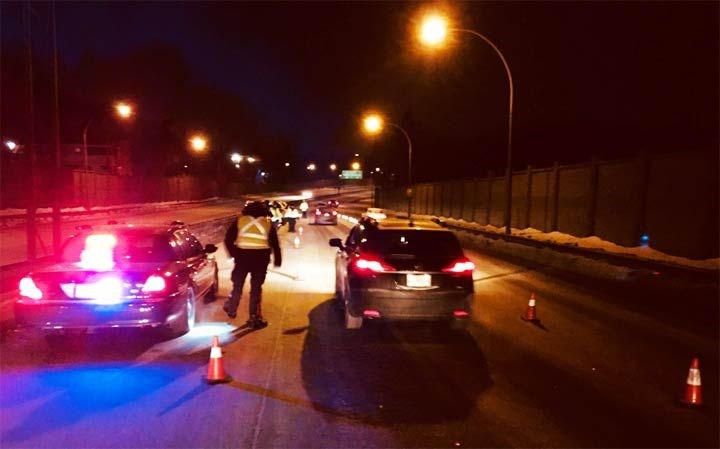COCHRANE— Thanksgiving weekend is a time for gathering with family, giving thanks, sharing in some laughs, eating and drinking.
Unfortunately, many of those drinkers will also be drivers at the end of the night, which is why Alberta RCMP conducted Operation Impact over the holiday weekend.
Operation Impact is an anti-impaired driving campaign conducted annually by Alberta RCMP.
Last year in Alberta, there were four fatalities and 177 injuries as a result of 305 motor vehicle collisions over the Thanksgiving long weekend alone.
This year, between Oct. 9 - 12, there were five fatalities and 207 motor vehicle collisions.
Alberta RCMP issued a total of 2,870 traffic safety tickets, including 1,914 speeding charges, 27 excessive speeding charges for driving more than 50 kilometres per hour over the speed limit, 83 charges for driving without a seatbelt, 96 impaired driving charges, and 71 distracted driving charges during Operation Impact 2020.
“There are statistics that show that this time of year is particularly bad for impaired driving,” said RCMP Cpl. Troy Savinkoff. “It should be noted that impaired driving is the leading cause of criminal death in Canada, so what that means is more people are killed by impaired driving than are murdered in our country.”
This year, he said, Cochrane might be more sensitive to these issues due to the recent fatality on Highway 22, where impaired driving is suspected to be the cause of the accident and is being investigated by the RCMP.
“The sad thing is that it’s something that’s preventable and we need all of the community to come together to try and prevent these crimes from happening,” he said.
In Cochrane, the RCMP detachment was conducting increased patrols and enforcement activities targeting impaired driving, distracted driving and seatbelt compliance.
“We’ll focus our activities directly on those types of offences that are statistically proven to save lives and we’ll direct our enforcement efforts on those particular things,” he said.
Savinkoff said the problem of impaired driving fluctuates.
He has seen four or five impaired driving cases being processed per week, but has also seen that number being processed in a single night.
If a vehicle driving is driving erratically there is a suspicion the driver may be under the influence of drugs or alcohol, Savinkoff said, you should call the local RCMP detachment.
“We always say if it’s a non-emergent complaint to call our normal dispatch line, but an impaired driver presents a very real risk to the safety of the community and definitely would be cause to call 911,” he said.
There are several details a driver who has contacted the police should be ready to provide.
“Depending on the driving behaviour the first thing that they want to get out is where they are, their direction of travel and the vehicle license plate of the vehicle. After that initial information is given the dispatcher will also ask for the information of the person— Remember you’re not just calling the police, you’re going to be a very important witness for the investigation which is crucial for getting a successful conviction in court,” he said.
Savinkoff said one of the most common points of contention in impaired driving cases is always driver intent— Whether or not an impaired driver got behind the wheel intending to cause harm to another.
That argument does not hold water for him.
“If I were to take a gun, close my eyes and randomly shoot the bullet, certainly I should be responsible for the effects that will have,” he said. “People need to take responsibility for their actions.”




